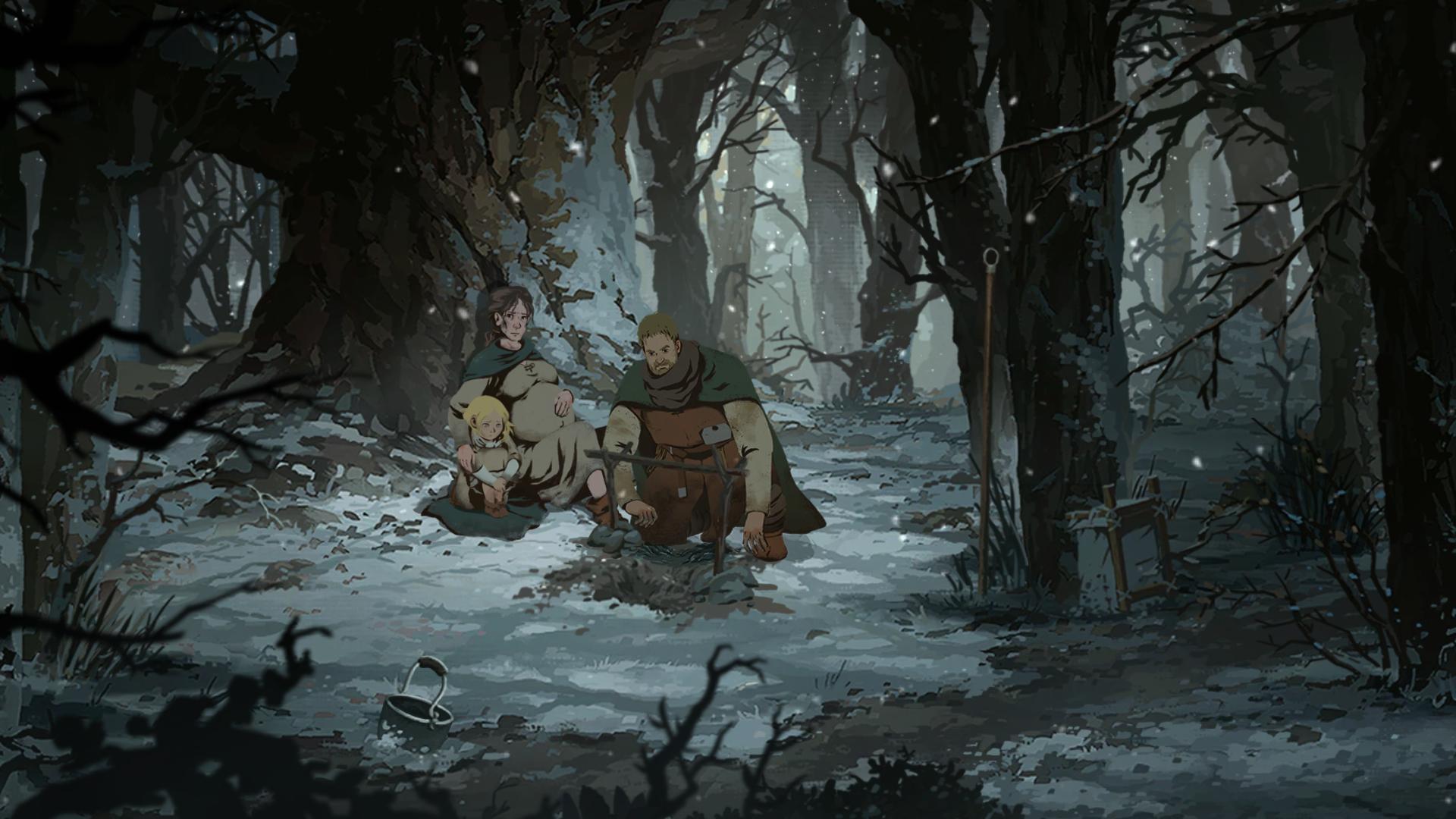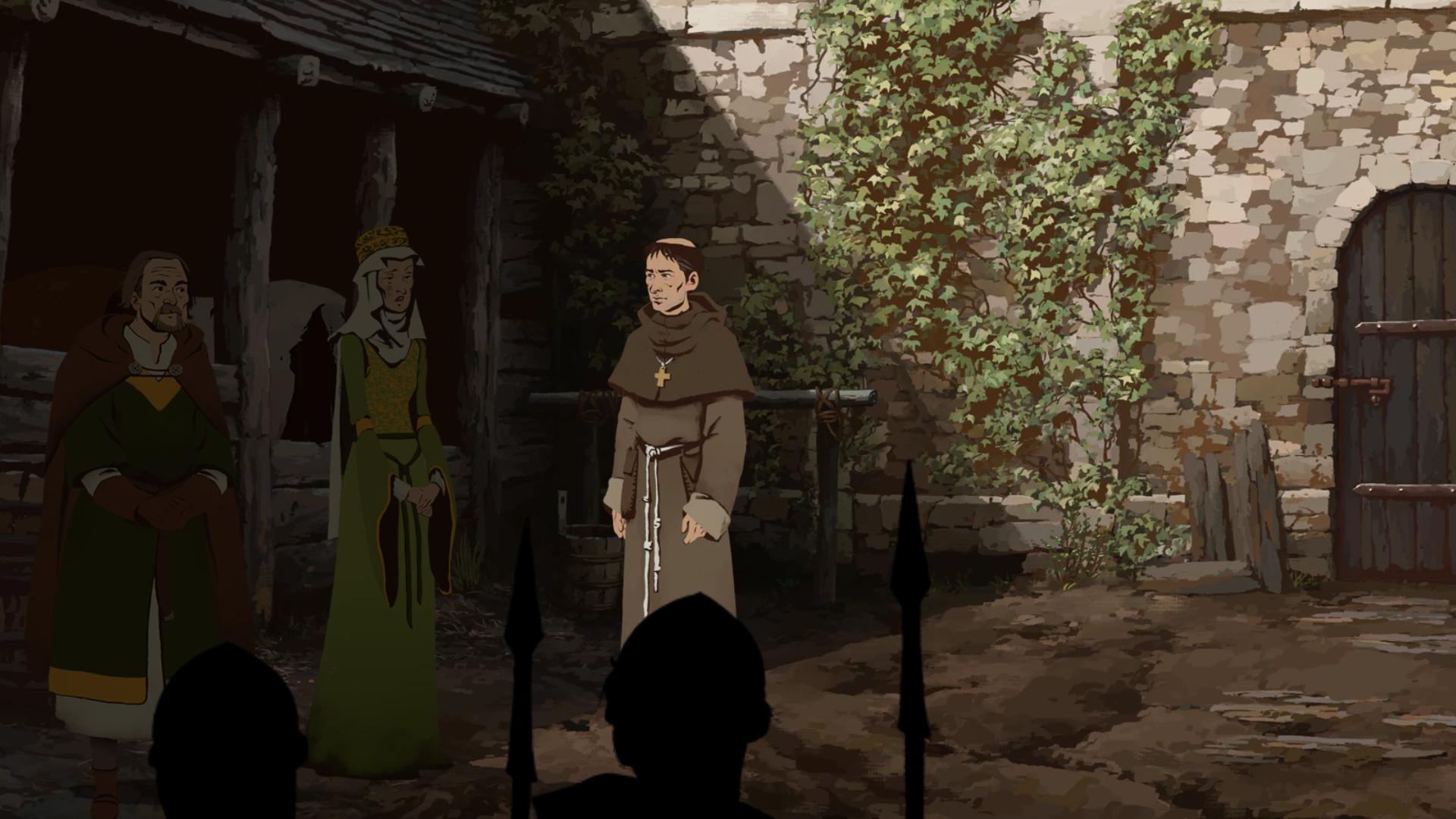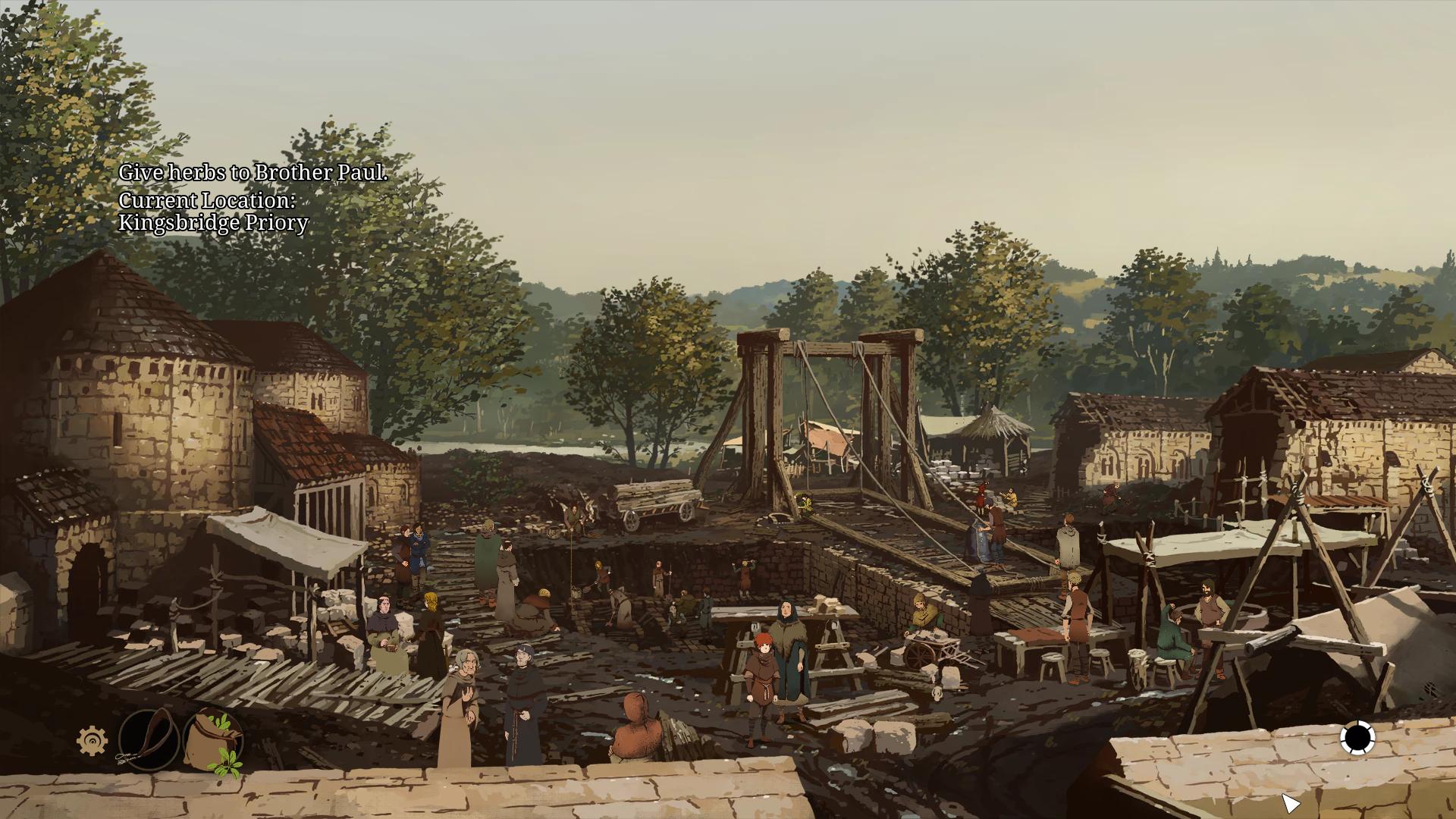Within the first half hour of Daedalic’s Pillars of the Earth (based on the 1989 Ken Follett novel of the same name), I was trying to deliver a baby in a snow-covered clearing amidst a wood gripped by an English winter. I wasn’t concerned with knightly valor or the sizes of armies. I needed warm water, soft bedding, and some reassuring words for my expecting wife. As this attractively hand-drawn adventure game switched between multiple perspectives, I was most struck by how it reminds us that history is full of normal people engaged in day-to-day drama that doesn’t always involve mortal peril.
Pillars of the Earth has its share of noble intrigues and momentous twists of fate, but the heart of the story is its cast of characters—most of whom occupy the lower to middle rungs of 12th Century English society. Other than a brief appearance by the king, the most powerful character you meet is about the equivalent of the lowest-level lords in Crusader Kings. And yet, he is a towering political force in the region the story occupies.

Most of us have far more in common with peasants and wheelwrights than we would with a baron or a knight.
This shift in scale frames the decisions you’re forced to make in a smaller, human context—though some do have larger, political ramifications. Should I abandon my dreams to feed my family? What will we do if the castle where we are staying is attacked? How am I to distribute bread to refugees if there isn’t enough to go around?
One of the most intriguing plotlines centers on the character of Brother Phillip, a Christian monk who finds himself tangled up in the election of a new Prior (basically Big Monk In Charge) for one of the region’s prominent cathedrals. The heir apparent to the post is kind of a conniving jerk, but has his supporters. Far from a house of holy men behaving perfectly piously, this episode is a window into how medieval monastic communities could have petty office politics, plotting, and talking behind backs just like any modern workplace. It erodes stereotypes and reminds us that people of the past were people above all, and being of the past doesn’t necessarily make them so different from us.

Also notable is the total lack of combat. The main characters are either men of God sworn to harm none, peaceful craftsmen, evasive, wood-dwelling outlaws, or small children. There are plenty of dramatic events taking place, but the closest we see to any physical violence against a person (you do at one point have to kill a deer) is an army appearing ominously on a distant hill before the scene fades to black.
Most fantasy and historical fiction based on the Middle Ages tends to focus entirely on those who fight, so it’s refreshing to see someone telling stories that are complex and interesting without anyone ever raising a sword. This method of storytelling also casts light on how coming across a heavily-armed man, if you were not a soldier yourself, could be an uncertain and harrowing experience, even if the soldier in question was ostensibly on your side.

The lack of traditional action can cause Pillars of the Earth to drag in certain places, but I enjoyed the journey through the first seven of a planned 21 chapters nonetheless. Sometimes, what it takes for history to really resonate and come alive is to be reminded of the less sweeping and epic elements of it. The lives of the commonfolk can appear superficially boring viewed from a high tower, when there are wars for thrones and court intrigues going on around them (and Pillars of the Earth also does a terrific job modeling the political friction between the nobles and the Church, by the way).
The biggest gaming news, reviews and hardware deals
Keep up to date with the most important stories and the best deals, as picked by the PC Gamer team.
But when you take a moment to examine their everyday struggles more closely, realizing most of us have far more in common with peasants and wheelwrights than we would with a baron or a knight, the era comes into a sharper focus and gives you a new appreciation for the context of it all.
Len Hafer is a freelancer and lifelong PC gamer with a specialty in strategy, RPGs, horror, and survival games. A chance encounter with Warcraft 2: Tides of Darkness changed her life forever. Today, her favorites include the grand strategy games from Paradox Interactive like Crusader Kings and Europa Universalis, and thought-provoking, story-rich RPGs like Persona 5 and Disco Elysium. She also loves history, hiking in the mountains of Colorado, and heavy metal music.

